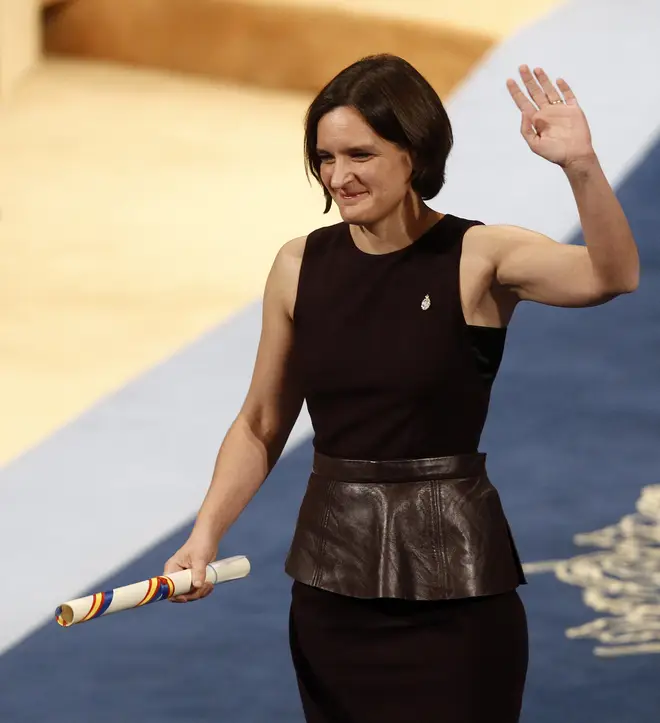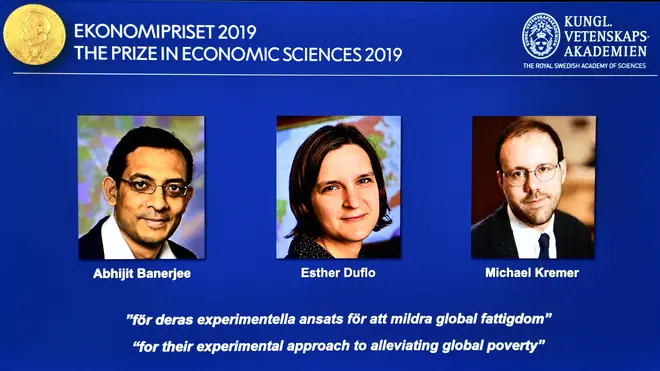
Oli Dugmore 4am - 7am
14 October 2019, 14:40

The 2019 Nobel Prize for economics has been shared by three people for their work in trying to alleviate poverty.
Abhijit Banerjee, Michael Kremer and Esther Duflo have won the economics prize for their work that had "dramatically improved our ability to fight poverty in practice", the Royal Swedish Academy of Sciences said.
Esther Duflo is only the second woman to win the economics prize, after Elinor Ostrom got it in 2009.
At 46 years old, she is also the youngest recipient of the award.
The French-American economist said: "Showing that it is possible for a woman to succeed and be recognised for success I hope is going to inspire many, many other women to continue working and many other men to give them the respect that they deserve like every single human being."
"Showing that it is possible for a woman to succeed and be recognised for success I hope is going to inspire many, many other women to continue working and many other men to give them the respect they deserve."
— The Nobel Prize (@NobelPrize) October 14, 2019
- Esther Duflo at today's press conference announcing her prize. pic.twitter.com/vTVBus80Hv
The trio's work focused on poor communities in India and Africa. It has looked at how small actions, such as motivating teachers to show up for work, can make a difference.
Their research helps show which investments are worth making and has the biggest impact on the lives of the poorest people.
“Our vision of poverty is dominated by caricatures and cliches,” said Ms Duflo about her fieldwork and research in 2017.
“We need to understand the obstacles faced by the poorest and try to think about how we can help them move on,” she said.

Professor Avner Offer of Oxford University has welcomed today’s awards, saying:
“An excellent prize this time. [It] is long overdue recognition for an important field and some of its very best practitioners. This field also constitutes a rejection of standard economic theory, which it invokes very little and often not at all.”
Prof Banerjee and Prof Duflo both work at the Massachusetts Institute of Technology (MIT) in the US, while Prof Kremer works at Harvard University.
The economics prize winners have won a nine million-kronor (£731,000) cash award, a gold medal and a diploma.
Last week, six Nobel prizes were given - medicine, physics and chemistry plus two literature awards, and the coveted Peace Prize.